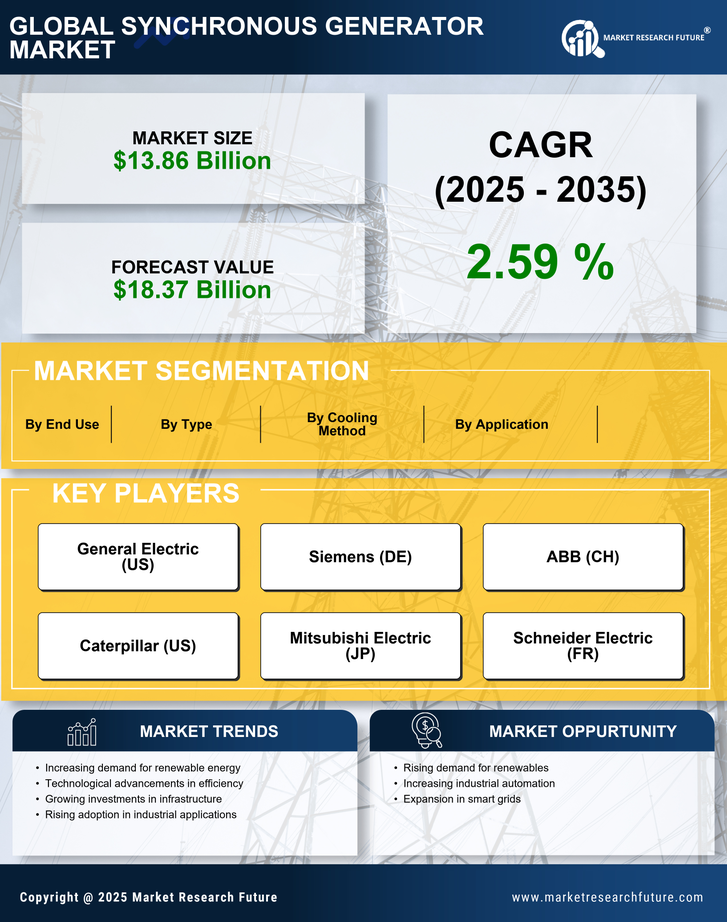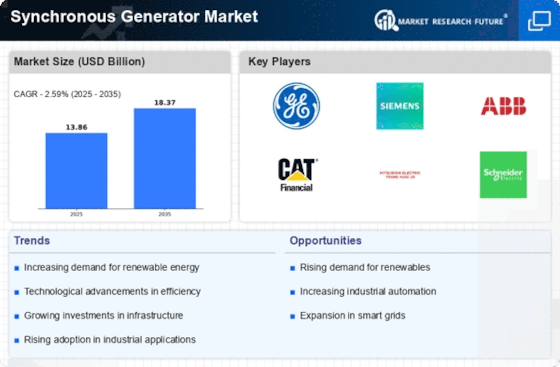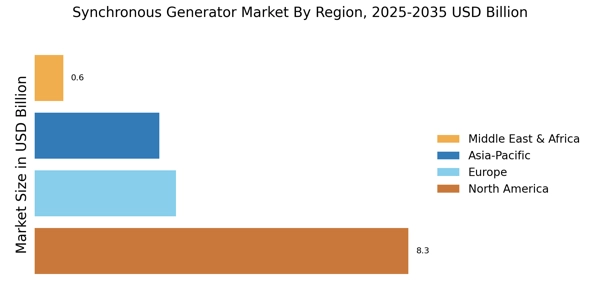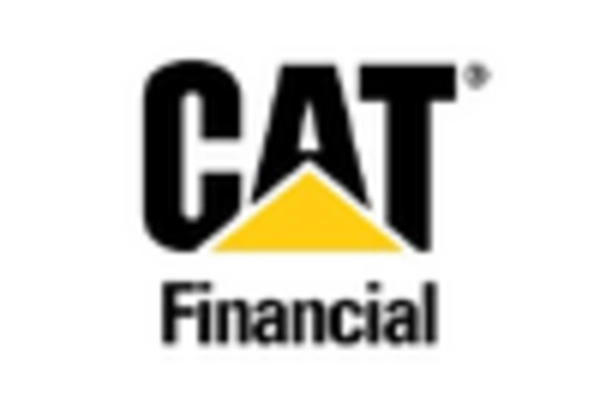Expansion of Industrial Applications
The Synchronous Generator Market is witnessing an expansion in industrial applications, which is significantly contributing to its growth. Industries such as manufacturing, mining, and oil and gas are increasingly adopting synchronous generators to meet their energy needs. These generators are favored for their ability to provide stable voltage and frequency, which are essential for the operation of heavy machinery and equipment. The increasing industrialization in emerging economies is expected to further drive the demand for synchronous generators. Market data suggests that the industrial segment accounts for a substantial share of the overall market, highlighting the importance of synchronous generators in supporting industrial growth and operational efficiency.
Increasing Demand for Reliable Power Supply
The Synchronous Generator Market is experiencing a notable surge in demand for reliable power supply solutions. This trend is largely driven by the growing need for uninterrupted electricity in various sectors, including industrial, commercial, and residential applications. As economies expand, the reliance on stable power sources becomes paramount, leading to increased investments in synchronous generators. According to recent data, the market for synchronous generators is projected to grow at a compound annual growth rate of approximately 5.2% over the next few years. This growth is indicative of the industry's response to the rising expectations for energy reliability and efficiency, positioning synchronous generators as a critical component in modern power systems.
Regulatory Support for Clean Energy Initiatives
The Synchronous Generator Market is benefiting from regulatory support aimed at promoting clean energy initiatives. Governments across various regions are implementing policies that encourage the adoption of renewable energy sources, which often require synchronous generators for grid stability and energy management. This regulatory environment is fostering investments in synchronous generator technology, as it aligns with global efforts to reduce carbon emissions and transition to sustainable energy systems. The market is likely to see an increase in demand for synchronous generators that can efficiently integrate with renewable energy sources, such as wind and solar, thereby enhancing the overall reliability of the power grid.
Rising Investment in Infrastructure Development
The Synchronous Generator Market is experiencing a boost from rising investments in infrastructure development. As countries prioritize the enhancement of their energy infrastructure, there is a growing need for reliable power generation solutions. Synchronous generators play a crucial role in supporting infrastructure projects, including transportation, telecommunications, and urban development. The increasing focus on building resilient energy systems is likely to drive demand for synchronous generators, as they provide the necessary stability and reliability for large-scale projects. Market forecasts suggest that infrastructure investments will continue to rise, further solidifying the position of synchronous generators as essential components in the energy landscape.
Technological Innovations in Generator Efficiency
The Synchronous Generator Market is being propelled by technological innovations that enhance generator efficiency and performance. Advances in materials, design, and control systems are enabling manufacturers to produce more efficient synchronous generators that consume less fuel and generate higher output. These innovations not only reduce operational costs but also improve the environmental footprint of power generation. As energy efficiency becomes a critical focus for both consumers and regulators, the demand for technologically advanced synchronous generators is expected to rise. Market analysis indicates that the introduction of smart grid technologies and automation will further drive the adoption of these generators, making them a vital component in modern energy systems.


















